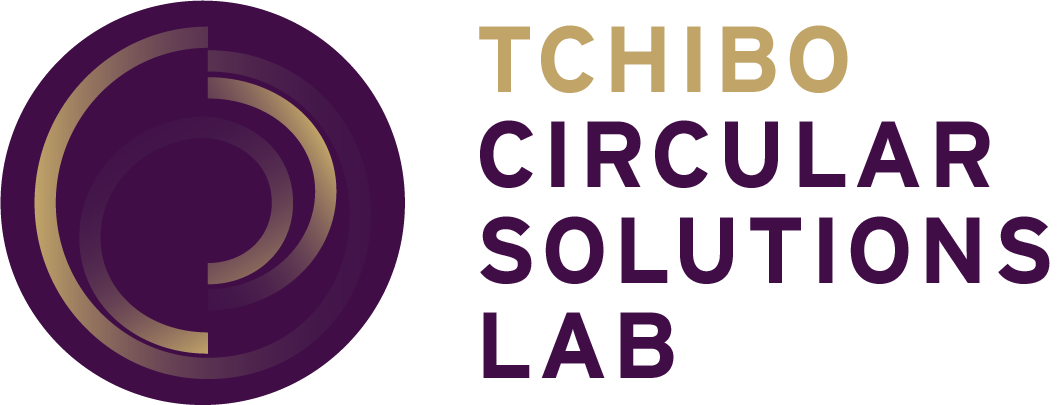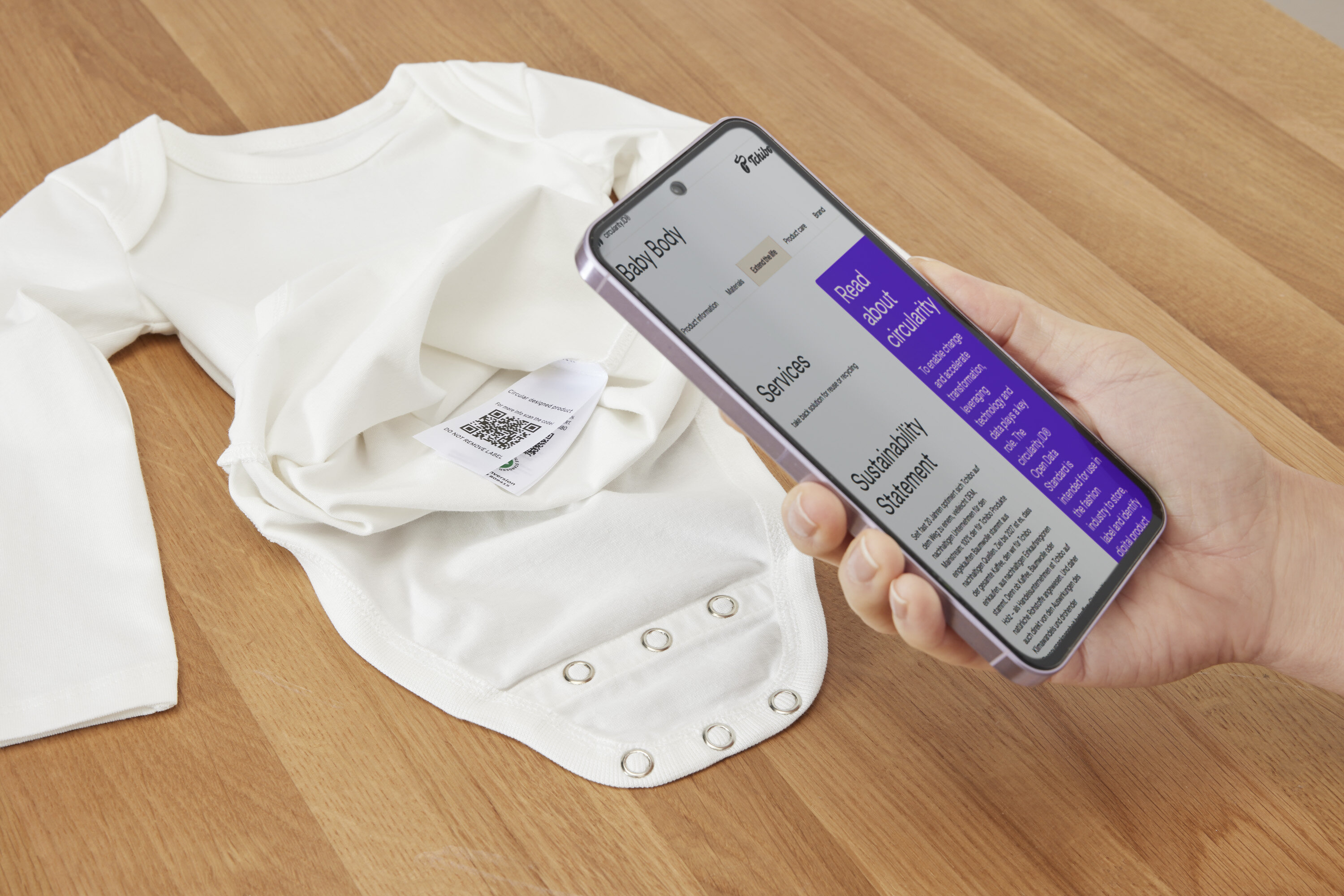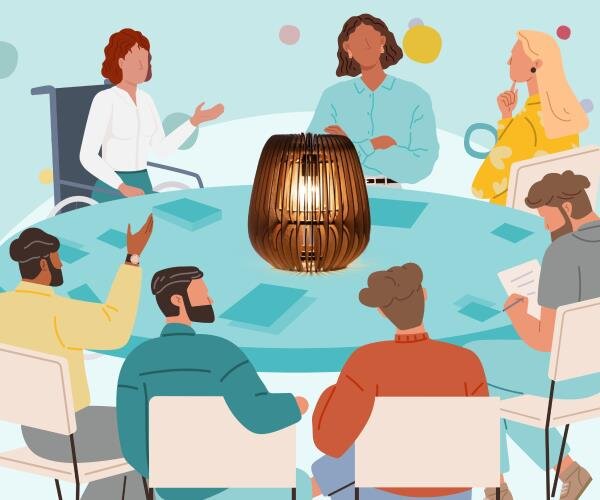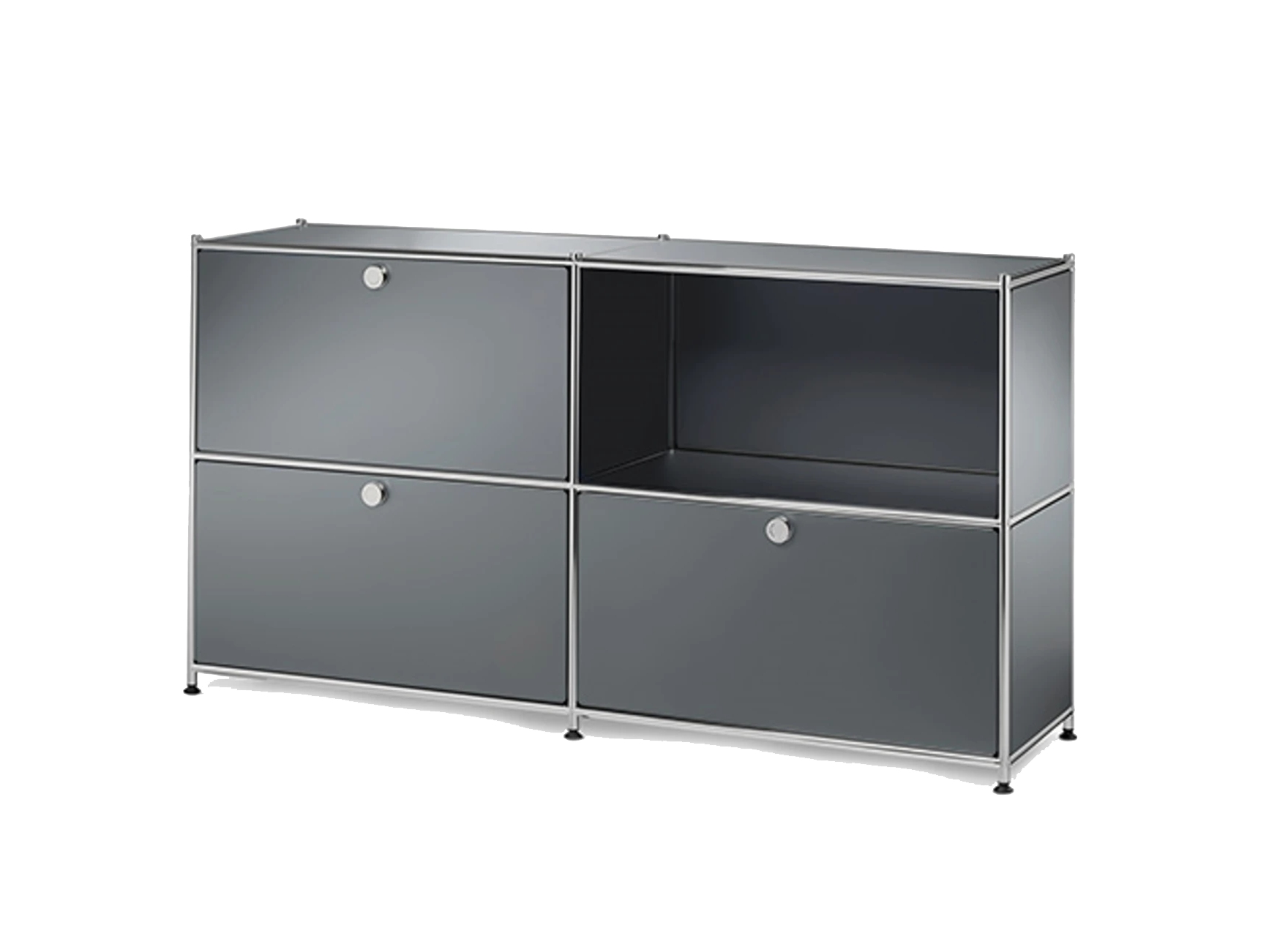Circular economy
Redesign / Rethink
Redesign starts with doing things differently. Rethinking things. Exactly: RETHINK.
For us, the circular economy starts with the design of our products and their packaging. Our long-term goal is to design products in such a way that most of the components can be returned to the cycle at the end of the product's life. To achieve this, we need design guidelines that are taken into account in product design.
Circular Solutions Lab
In 2022, we founded the Circular Solutions Lab for this purpose. Here, we can research circular ideas in an experimental and collaborative environment and also test them directly on the market. In order to develop new concepts for circular products, business models, processes or material innovations, the team provides its expertise and network in the field of circular economy, as well as human and financial resources to support the respective specialist departments. In addition, the Circular Solutions Lab team has launched the Circular Solutions Academy, an internal training program for Tchibo colleagues that encourages colleagues to rethink and has already been very well received. The program, which began with quarterly online basic courses, was soon expanded to include advanced workshops for specific product categories and round table idea formats. The new Think-Tank-Format “Circular Round Table” was launched in February 2025 with the aim of sharing knowledge and examples and discussing how each individual can implement circularity at Tchibo. Colleagues are also supported in developing their own ideas.
To summarize: The Circular Solutions Lab is an ideas platform for testing circular innovations and training employees.

Circular Design
The Circular Baby Body with digital product passport
Tchibo is part of the alliance initiative “Implementing Circularity in the Textile Industry”, which is being implemented in cooperation with the German Federal Ministry for Economic Cooperation and Development (BMZ) and the Deutsche Gesellschaft für Internationale Zusammenarbeit (GIZ).
The initiative is committed to closing the textile cycle and establishing sustainable standards. As part of the ICTI initiative, representatives from the participating companies - including ALDI SÜD, Blutsgeschwister, KiK, Otto Group with OTTO and bonprix and Tchibo - work together in multidisciplinary teams under the leadership of circular.fashion. A key component of the initiative is the involvement of suppliers in the production countries. Their involvement during product development and before the production steps ensures that the design strategies can be implemented and that everyone involved can benefit from the new processes.
In May 2025, Tchibo launched a set of 5 baby bodysuits as part of this project, which were produced according to circular.fashion's circular design criteria and are therefore durable and recyclable. The bodysuits have a digital product passport: the circularity.ID®. Customers can scan the QR code on the care label with their smartphone to find out more about the product life cycle and the take-back system for a closed-loop solution at the end of the product life cycle.


The “Fab City Lamp” - local, circular, innovative
Tchibo is participating in the project “The Fab City Lamp - Testing local, circular and decentralized production”. This lamp should be modular, repairable and recyclable, designed in line with the “Circular Design” guidelines - and therefore a real highlight in terms of sustainability and design. Tchibo beteiligt sich am Projekt „Die Fab City Lampe – Erprobung lokaler, zirkulärer und dezentraler Produktion“. The idea so far: a table lamp as a modular system (so that customers can assemble the lamp themselves) and produced locally in the greater Hamburg area. In February 2025, Tchibo invited loyal customers from the TchiboCard community to a workshop in Hamburg to contribute their suggestions for the prototype and involve them in the product development process.
This project is being realized as part of the project “The Fab City Lamp - Testing local, circular and distributed production” funded by the Federal Ministry of Education and Research, a project in cooperation with the New Production Institute of the Helmut Schmidt University Hamburg and INDEED Innovation, which will run until 2026. During this period, together with our partners from Helmut Schmidt University, we will gain valuable insights into circular and customer-oriented design, the digital product passport as preparation for the Ecodesign Regulation and local production.
Longevity
To help conserve resources and protect the environment, we have set ourselves the goal of using sustainable materials and promoting the long-term use of our products. Durable products are designed to remain functional over a long period of time. They must be made of robust materials and have a stable construction so that they do not wear out or break so quickly. A timeless and modular design, as well as the consideration of repairability during product development and the provision of spare parts, help to ensure that the product can be used for longer. This is our path to long-lasting products: First of all, we need to identify which and how many products in our range are already durable. To do this, our Non Food colleagues are currently using a decision tree to assess whether a product is long-lasting or not. In future, the evaluation of which and how many of our products meet our longevity criteria should help us to further develop our products in the direction of a long-lasting product design. However, as product quality has always been a high priority for Tchibo, there are already many products in the range that meet the requirements of a durable product, such as our CN3 furniture series (see illustration ). The “CN3” furniture series embodies Tchibo's quality standards and durability. It is built to last and is characterized by timeless design and robust construction, complemented by a scratch-resistant surface. Customers have the flexibility to expand their products with additional modules such as colored fronts, castors or drawers.
